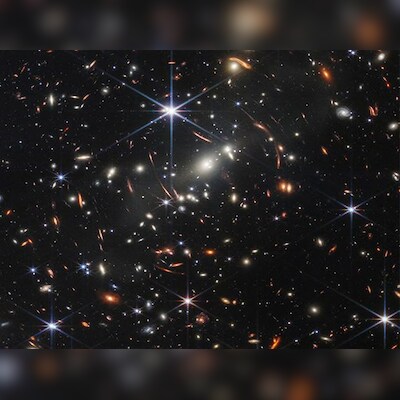New study reveals that the Universe may had ‘secret life’ before Big Bang | World News

According to the latest study published in the Journal of Cosmology and Astroparticle Physics, our universe might have had a secret life before the Big Bang.
The researchers suggest that before the Big Bang, the universe went through a phase of contraction during which black holes were formed, which could potentially explain the enigmatic nature of dark matter.
A recent study reveals that the universe first contracted before entering into the expansion phase. This theory challenges the traditional assumption which believes that the universe was formed with a single event called the Big Bang and then entered rapid expansion. The new study will challenge our previous understanding of black holes and dark matter.
The researchers also believe that during the contraction phase, the fluctuation in the density led to the formation of small black holes. These primordial black holes survived the rebound and persisted into the current expansion phase; it could potentially form the elusive dark matter making up about 80 per cent of the universe’s matter.
The research is being conducted at the French National Center for Scientific Research (CNRS). Patrick Peter, the research director at CNRS said, “Small primordial black holes can form in the early phase of the universe, and unless they are too small, their decay by Hawking radiation is not efficient enough to get rid of them, so they would still exist today. With a mass roughly equivalent to that of an asteroid, they could contribute to dark matter or even solve this problem altogether.”
If this theory proves to be true, it will revolutionise our current understanding of the university, especially in terms of black holes and dark matter. The primordial black holes’ existence could provide a compelling explanation for the dark matter which has long eluded scientists due to its lack of interaction with light.
Researchers are hopeful that the upcoming gravitational wave detectors which include “the Laser Interferometer Space Antenna (LISA) and the Einstein Telescope,” will have the capability to detect the gravitational waves emitting during the creation of these primordial black holes. If detected, it will be vital evidence in support of the hypothesis that these black holes constitute dark matter.
First Published: Sep 02 2024 | 5:09 PM IST




